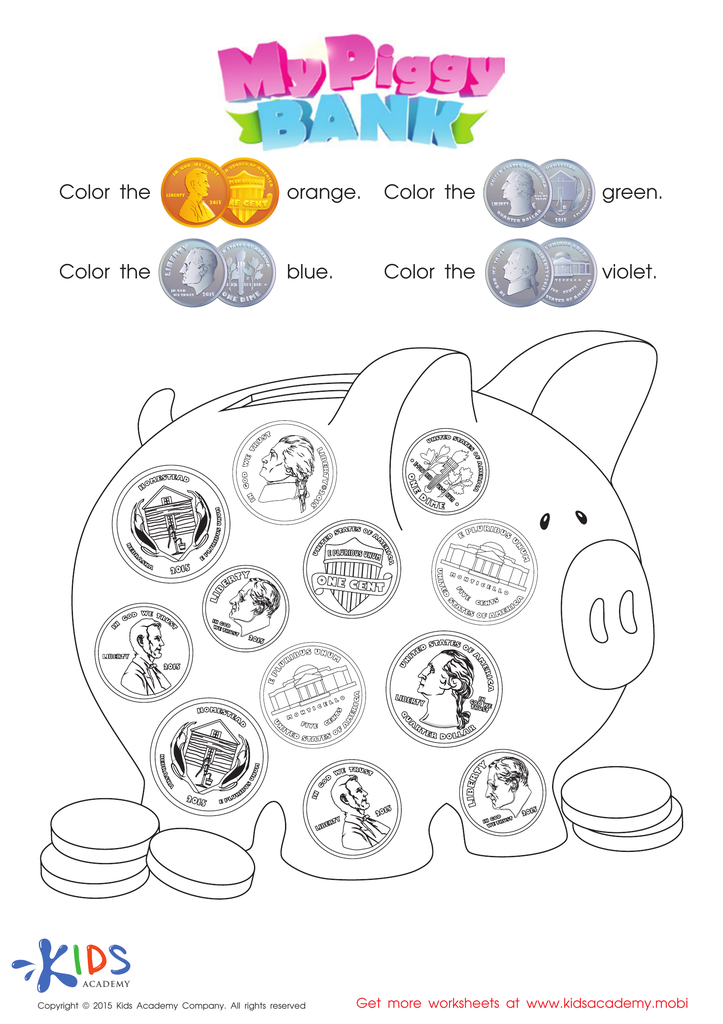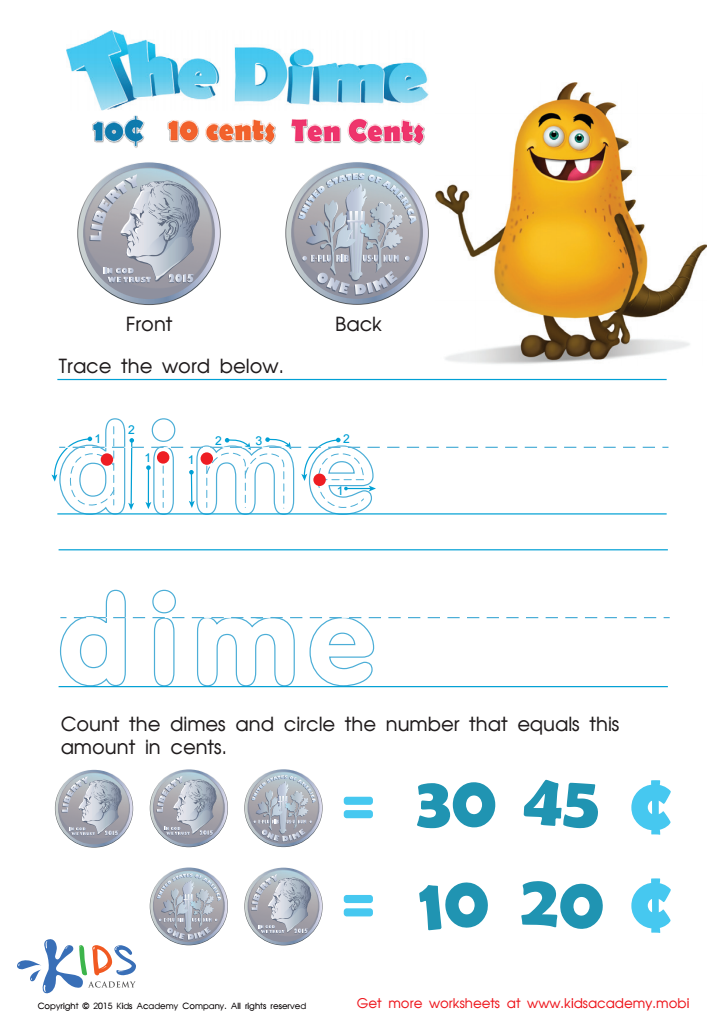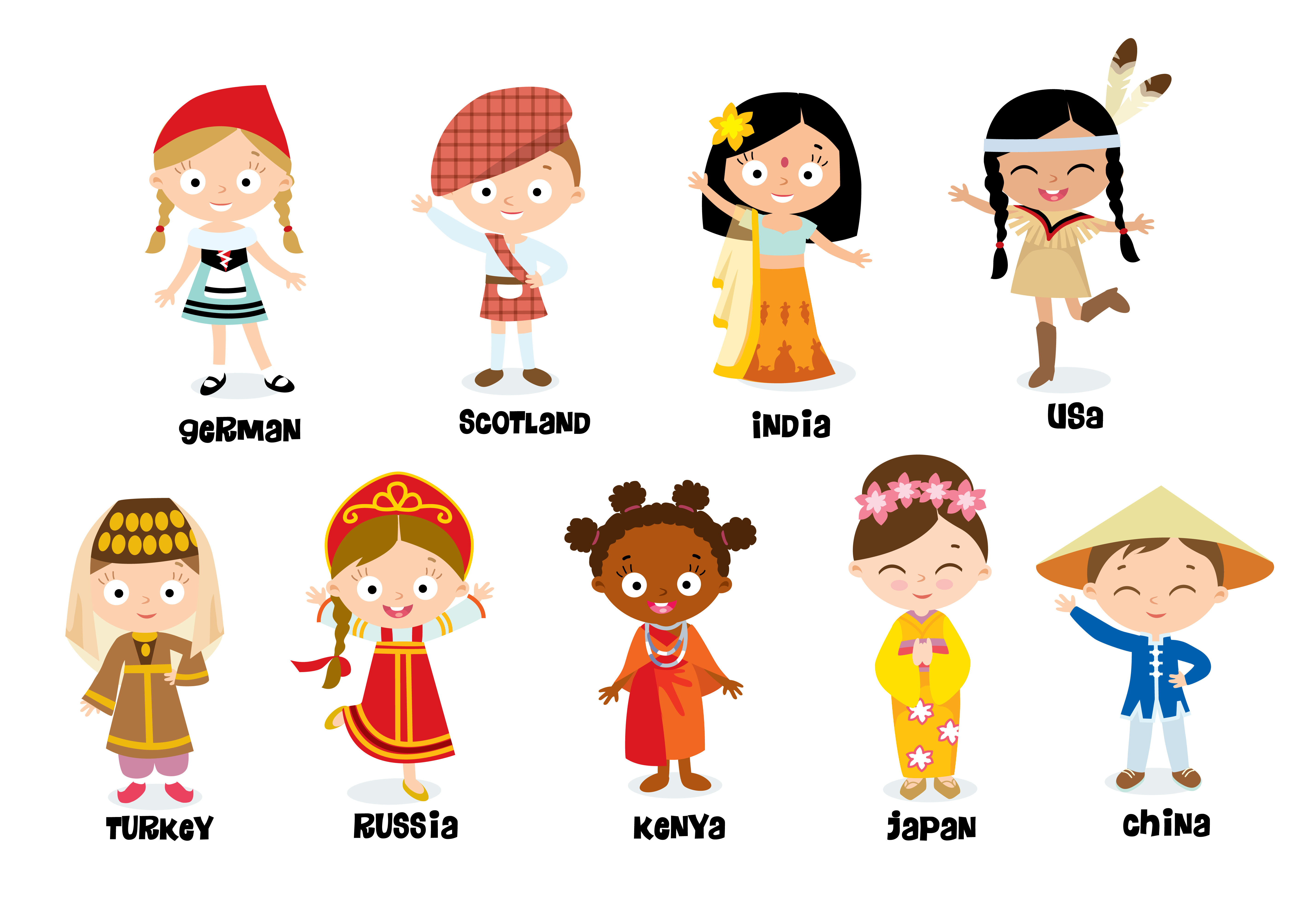Counting money Worksheets for Ages 3-9
3 filtered results
-
From - To
Introduce your child to financial literacy with our comprehensive Counting Money Worksheets for Ages 3-9. These engaging, age-appropriate worksheets foster early learning by helping kids recognize and count different coins and dollar bills. Perfect for preschoolers to early elementary students, each activity combines fun with education, building crucial math and cognitive skills. With vibrant images and real-life scenarios, children can seamlessly practice counting, addition, and subtraction. Make learning interactive and exciting, catering to various learning styles and pace. Boost your child's confidence in handling money and develop important life skills with our expert-designed resources.


Recognizing Money Money Worksheet


Ten Cents or the Dime Money Worksheet
Counting money for children ages 3-9 is a foundational skill that extends far beyond simple arithmetic; it offers vital life lessons essential to their future success. At this formative age, learning to handle money taps into various core mathematical concepts such as counting, addition, subtraction, and understanding numeric values. For parents and teachers, instilling these skills early can spark an interest in mathematics, making learning enjoyable and contextually relevant for young minds.
Moreover, it teaches children the basic principles of financial literacy, a crucial life skill that many adults struggle with. Early familiarity with money fosters responsible habits such as saving, budgeting, and recognizing the value of items. This foundational understanding fosters smarter financial decisions as they grow older.
Furthermore, counting money enhances cognitive development. Children sharpen their focus, develop problem-solving skills, and improve their ability to follow multi-step processes. It also introduces them to practical, everyday scenarios they will encounter, such as buying snacks, making change, or saving allowances. This real-world application bridges the gap between academic learning and practical everyday use.
Lastly, confidence is built when children successfully handle money, nurturing a sense of independence and competence. Parents and teachers who emphasize this skill equip children with the tools necessary to navigate a numerically driven world efficiently, responsibly, and confidently.


 Assign to the classroom
Assign to the classroom












